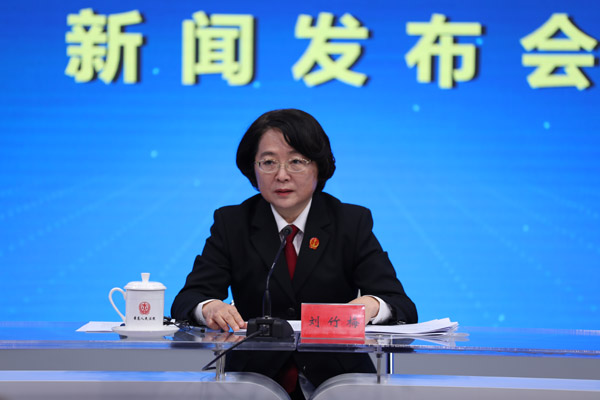Top court boosts efforts to assist victims of injustice
 |
| Liu Zhumei, director of the Supreme People's Court's compensation office,speaks at a news conference on Dec.19.[Photo/court.gov.cn] |
Chinese courts have intensified efforts to compensate and give judicial assistance to those who were hurt by miscarriages of justice over the past few years, China's top court said.
"Offering aid or state compensation for people who were wronged by government departments, including those wrongly convicted due to judicial misconduct, is an effective way to balance public power and private rights," said Liu Zhumei, director of the Supreme People's Court's compensation office.
She made the remarks at a news conference on Dec 19, saying sufficient compensation and timely judicial aid as a major part of the social security system also play a bigger role in improving people's livelihood.
State compensation can be applied not only for judicial mistakes but also administrative misconduct, she explained. Courts nationwide concluded 83,315 compensation cases from 2014 to 2018, and more than 22,000 of them were related to the judicial errors.
Since the beginning of this year, courts at each level have heard 6,449 cases on state compensation regarding judicial mistakes-an increase from an average of about 5,000 cases in past years, Liu said, adding the growth should attribute to people's increasing legal awareness.
In a high-profile case in September 2018, for example, the Jiangxi High People's Court compensated villager Li Jinlian 2.93 million yuan ($425,900) for wrongly convicting him of intentional homicide. Three months before that, Li, who served 19 years in prison, had his name cleared due to insufficient evidence after a retrial.
The compensation for Li included 2.03 million yuan for wrongful detention and 900,000 yuan for mental anguish.
"The money in such a case is to guarantee human rights and further uphold justice," Liu said. She added the legal system for state compensation has been basically completed and the system for judicial assistance has also been primarily established.
From 2015 to 2018, Chinese courts also helped about 300,000 people who struggled with litigation, such as victims in criminal cases and family members of the deceased, by providing them with relief money, according to the top court.
Su Ge, a judge with the court, said the move ensures such people do not fall into poverty because their rights were infringed upon and also to make them feel better about the justice system.







